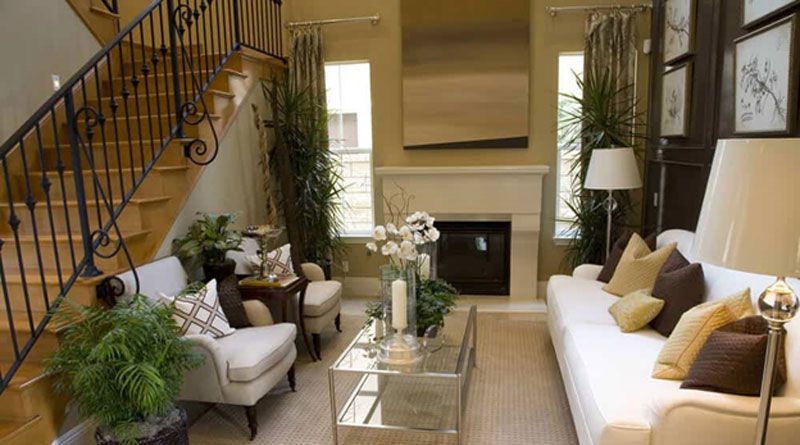Some things can be quite contentious in the landlord-tenant relationship. Every renter faces difficulties during their stay as a tenant. One of the most difficult decisions you will face as a renter is whether you are responsible for paying for repairs or if it’s your landlord’s responsibility. We have compiled a list of the most common problems you may encounter with your rental property, as well as who is responsible for arranging and pay for their repairs.
The Rule of Thumb
You probably wish to know the basics of landlord-tenant responsibilities if you are a new tenant. As a matter of fact, both the tenant and the landlord are responsible for the maintenance of the property. If the tenant causes any damage, even accidental, they will be responsible for the repair costs. If you block the toilet with Q-Tips or cotton balls, it’s obvious that your landlord will ask you to pay for the repairs.
Whether you live in a villa in Bangalore or a 1 bhk flat on rent in hyderabad, and whether the house is new or old, there are going to be occasions when something will need urgent fixing. In such a situation, it is important to consider whether the problem is minor, or if it requires serious interference. Generally, it’s best to fix minor problems yourself, even if it is a result of wear and tear. This is always quicker and more convenient than calling your landlord for maintenance.
However, if the issue is serious, it is important to inform your property manager, even if you are aware that you are responsible for repairs. Even if the problem is obvious and you are willing to get it fixed immediately, it is better to talk to your landlord first.
It is a great way to project yourself as a responsible tenant.
Read the rental agreement properly
Before anything can happen, it is important to understand what your lease agreement states about the subject. Does the lease agreement mention maintenance or repairs?
Even if you can’t read every section of the lease agreement, it is important that you have a good understanding of the most important sections of the lease. Having a rental agreement, with clear maintenance and repair terms is extremely important. If you are in a stressful circumstance like an overflowing kitchen sink, you will know whether you should call your landlord, or a plumber.
What is the norm for maintenance and repairs in a lease agreement?
The landlord may request that you inform them in writing about any repairs or maintenance to the apartment. If you undertake a large project without the landlord’s knowledge, it falls under the category of unauthorized repairs. Unauthorized repairs may get a tenant evicted.
You might also find a clause that says the landlord is responsible to fix major fixtures and items such as the roof, and electric systems.
And since the rental agreement makes things so much easier, it’s important to have one even if you intend to live in a 1bhk flat rent in hyderabad.
Maintenance falling under the landlord’s responsibility
Landlords are required to ensure that the property can be used as a dwelling.
Before the renter can move in, and throughout their tenancy, the rental property must meet minimum safety and health standards. This includes the condition of the roof, or the walls, as well as working electrical, and plumbing systems. The landlord should repair or replace anything that is damaged or becomes unusable due to wear and tear, or simply old age. The landlord is usually responsible for:
- Structural repairs: Repairing cracks in foundations or walls, fixing roof problems, replacing flooring etc.
- Problems with plumbing
- Problems with electrical systems
- Infestation by rodents or pests
Although it is not required by any law, landlords will usually repair or replace appliances that were in the rental at the time the tenant moved in. It is best to check your lease and discuss the problem with the landlord.
Responsibilities of a tenant in terms of repairs
Tenants have the same duties as landlords. Tenants must keep their property clean and in good condition.
If the tenant violates this provision, a landlord may make them pay for repairs. These are just a few examples of repairs that the tenant might have to pay for—
- Damage to the floor or furniture
- Broken windows
- Damage caused by guests
- Damage caused by pets
Accidents happen and everyone is vulnerable to them. The landlord may be able to deduct the cost for repairs from the tenant’s security deposits, but it is better to speak to them immediately than waiting until the end.
Summarising
If you are unsure who should pay, these two criteria can help you evaluate the issue. Is it a minor issue or a major one? Is the damage due to normal wear and tear or your fault? Remember to communicate with your landlord about every issue that comes up. It pays dividends for both the landlord and the tenant in the long-term if they can develop a trusting and honest relationship.

Namaste UI collaborates closely with clients to develop tailored guest posting strategies that align with their unique goals and target audiences. Their commitment to delivering high-quality, niche-specific content ensures that each guest post not only meets but exceeds the expectations of both clients and the hosting platforms. Connect with us on social media for the latest updates on guest posting trends, outreach strategies, and digital marketing tips. For any types of guest posting services, contact us on info[at]namasteui.com.

